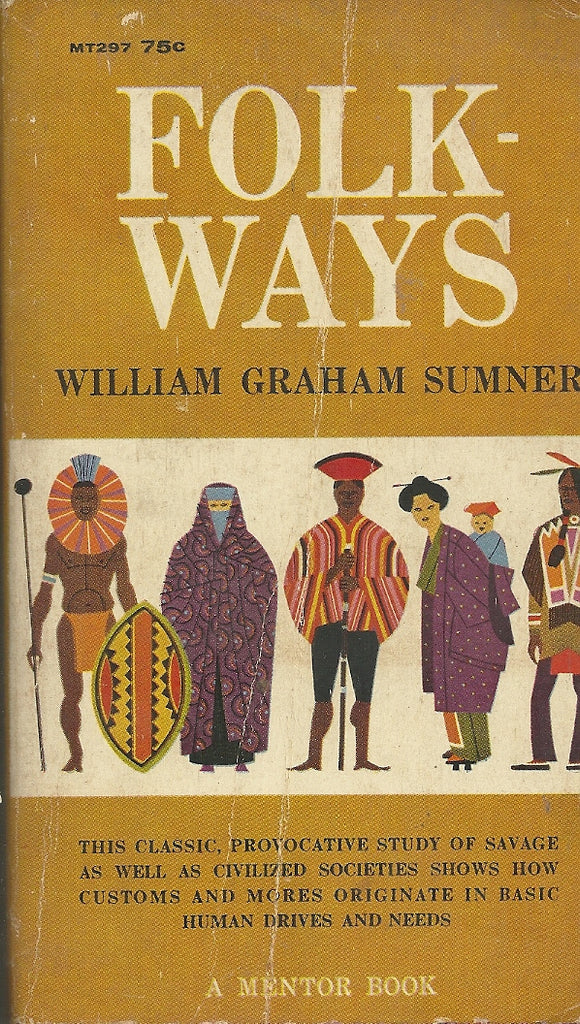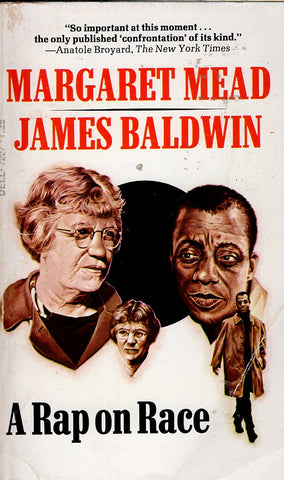Folkways
$ 10.00
Publisher: Mentor MT297
Year: 1960 Print: 1 Cover Price: $.75
Condition: Very Good. Light wear and tanning. Cover Crease
Genre: Non Fiction/Sociology
Pages: 605
100120054E
Sumner's exceptional study of the various morals and customs which emerged throughout the history of mankind is presented here in its entirety.
First published in 1906, Folkways attempts to chronicle the evolution of ethics in human society. How various moral tenets were arrived at and refined across all spheres of human activity are chronicled and discussed by Sumner, whose fascination with the dimensions of human morality manifests in this book's ambitious scope and vivid historical examinations.
A wide-ranging manual, Folkways begins by defining and characterizing the various mores established by humanity. Sumner frequently draws parallels between the various societies and cultures, noting how human beings would commonly arrive at remarkably similar conclusions when applying moral tenets to their laws and behaviors.
The chapters of this book are organized according to the moral sphere they concern: the first emergence of ethics in human society as civilization, currency and cities emerged; the ethical dimension to wealth in these societies; and the process by which morals influence the human being from his earliest childhood. All through his treatise, Sumner compares and contrasts the various human societies, and their treatment of specific phenomena.
Ethically contentious phenomena such as slavery and abortion feature, while widely condemned and taboo subjects such as cannibalism, incest and human sacrifice also receive their own chapters. The concept of blood feuds and revenge, and of vigilantism as a primitive form of justice, are also investigated.
Together with deeds considered morally wrong, Sumner also examines behaviors which are deemed good or worthy. Asceticism, the adherence to monogamy and lifelong union, and even good sportsmanship, are studied. How deeds are considered and portrayed in popular drama and exhibitions, and how these portrayals reflect upon the societies which produce them, are discussed.
As a study of human morality and ethics, Folkways remains an influential and wide-ranging text. It has influenced greatly subsequent authors in the fields of sociology, politics, philosophy, anthropology and other fields of scholarly thinking, to the point where it is today considered an under-appreciated classic.






